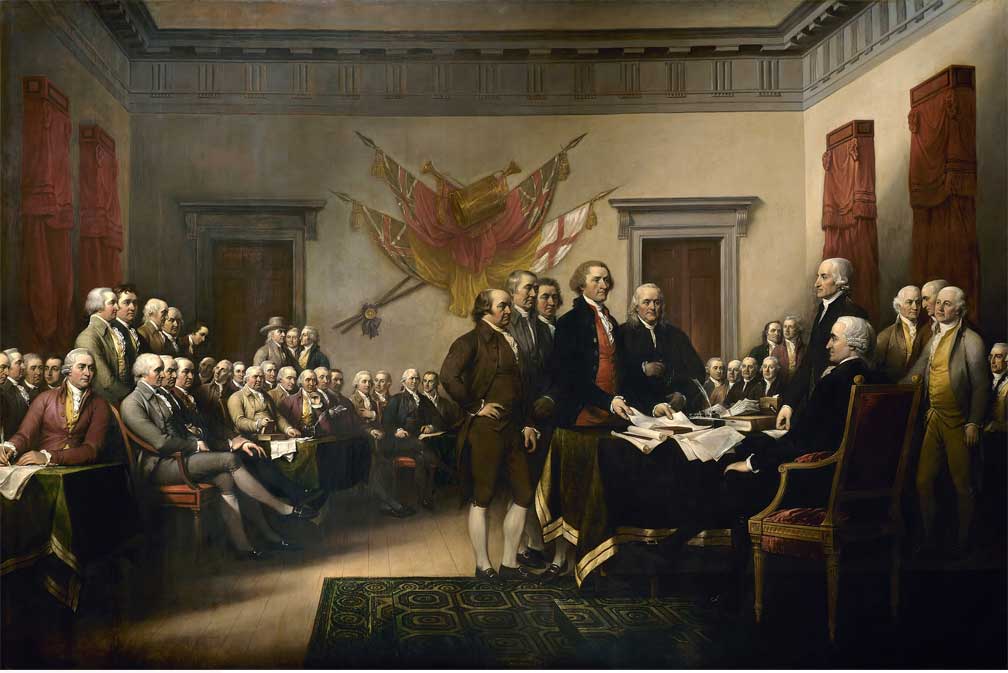Declaration of Independence July 4, 1776

Twelve colonies voted in favor of the Declaration of Independence. New York abstained. This Declaration stated that the colonies were free and independent states, absolved of all allegiance to England. It made official what had already been happening; as the War of Independence was in full swing.
.
From the moment hostilities broke out with the British, all of the members of the Continental Congress supported the Continental Army and their right to fight. However, the Congress was divided on whether the break with the motherland was permanent. Many of the more conservative members of the Congress believed it would still be possible to repair relations with the British. They pushed through the "Olive Branch Petition", in the hopes that the British King would step in and repair the relationship. When the King refused to even accept their petition, it became clear to many colonists there was no chance of reconciliation. The feeling of irreconcilable differences between the British and the colonists was further strengthened when the British shelled and destroyed Falmouth. After the destruction of Falmouth, the Royal governor of Virginia offered to free any slave who helped the Crown.
In January, Thomas Paine published "Common Sense". The publication of "Common Sense" had great impact on Americans, and as a result, on the Congress. Over 150,000 copies of Paine's "Common Sense" were sold. The book was read by countless additional people. Paine succeeded in bringing to the forefront, a message that had to date only been whispered.-"Americans want Independence".
Sentiments grew for independence from Britain. The sentiment for independence was strengthened by the need to receive aid from France. The colonies would only be able to receive French aid, once they were independent of British rule. In May 1776 the Congress instructed the individual colonies to establish independent governments. By June 1776 the sentiment for independence had hardened throughout the colonies.
The most important colony at the time was Virginia. The Virginia Convention met in Williamsburg. The Virginia Convention delegates voted to instruct their representatives in Congress to declare the colonies "ree and Independent states, absolved from all allegiances to, or dependence on, the Crown or the Parliament of Great Britain".
Following his instructions, Henry Lee introduced a resolution calling for immediate independence. Those who favored independence believed it was best to delay and allow the sentiments for Independence to continue to grow.
The Continental Congress appointed a committee consisting of John Adams, Thomas Jefferson, Robert Livingston, and Benjamin Franklin to draft a Declaration of Independence. The group tasked with drafting the Declaration of Independence delegated the job to Thomas Jefferson. Jefferson based his declaration on the universal rights of men; the key being that the right to govern is based on the consent of the people.
The Committee accepted Jefferson's draft almost in its entirety. On July 2nd, the Continental Congress accepted Lee's resolution calling for Independence. It then turned to the Declaration itself. They met as a committee for two full days. They made minor amendments to the draft of the Declaration. Finally, on the 4th of July the Congress approved the Declaration and signed it.
 >
>